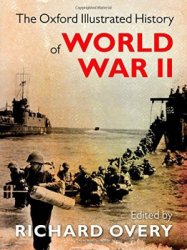The repeal movement took a full year before it assumed the proportions of the Catholic emancipation campaign. Furthermore, there were significant differences in this campaign. Some British and some Irish Protestant had been sympathetic to Catholic emancipation, but virtually none sympathized with repeal. O'Connell's allies included, most significantly, Archbishop John McHale of Tuam, whose endorsement was soon followed by many fellow Catholic bishops and by most of the lower clergy. The Catholic middle classes went along, probably more out of disapproval of the Tory or Conservative government than enthusiasm for repeal. The Catholic peasant masses were supportive, although a rival claimant on their loyalty were the still continuing secret societies whom O'Connell occasionally had to outbid by provocative oratory. An added ingredient to the movement was the support given by a group of young journalists and intellectuals, many of whom were Protestants, who championed a romantic nationalism based on language and ethnicity. Their weekly paper, the Nation, which started in October 1842, was a major instrument for advancing the cause of repeal.
O'Connell had proclaimed 1843 as "the repeal year" and he held a series of enormous meetings at various sites, usually places of historical significance, to which tens of thousands came. His meeting strategy coincided with a massive temperance campaign undertaken by a Cork Capuchin priest, Theobald Mathew, in which thousands of the peasantry "took the pledge" against alcoholic drink that so many had used as an escape from the misery of their socioeconomic situation. However, the implications from O'Connell's rhetoric, as well the overwhelming popular Catholic character of his audience, further frightened the Protestant population, some of whom feared they were witnessing a prelude to another 1798, but one that would be even more sectarian. Peel's government wanted to respond to the fears and put a dint in O'Connell's momentum, but they had to contend with the reality of the comparable mass movement in England in favor of the repeal of the Corn Laws, protective tariffs that the middle classes opposed because of their belief in free trade. But besides strengthening the military in Ireland, Peel did not have many options.
When O'Connell called the last meeting of the year for October 8 at Clon-tarf, north of Dublin, the site of Brian Boru's defeat of the Danes, the government was able to use the military character of the notices announcing the meeting as grounds for declaring it illegal. O'Connell immediately capitulated and issued a proclamation canceling the meeting and directing his supporters not to come. They obeyed and there was no confrontation. Later revolutionary nationalists condemned O'Connell for not calling Peel's bluff. O'Connell was opposed on principle to using violence in advancing his causes, but he was also aware of the futility of insurrection by masses of people against a well-trained army. The government was not satisfied with its victory, which inevitably worked to dampen enthusiasm for O'Connell. Authorities rescued his popularity among the Irish by charging him and a number of his associates with sedition the following May. He spent a number of months in comfortable imprisonment, being entertained as a dinner guest by the governor of the prison, until the House of Lords overturned the charges in September.




 World History
World History









